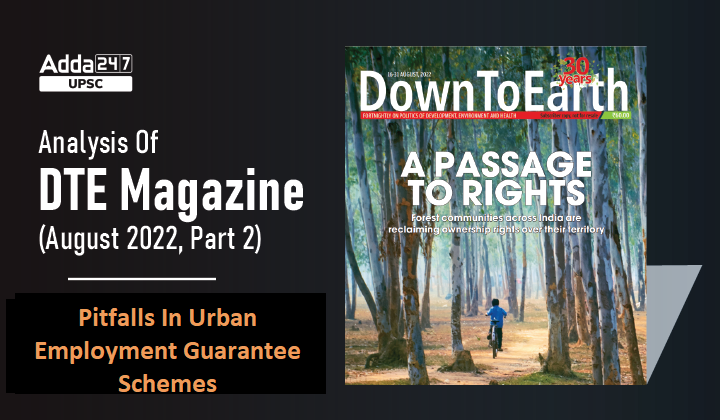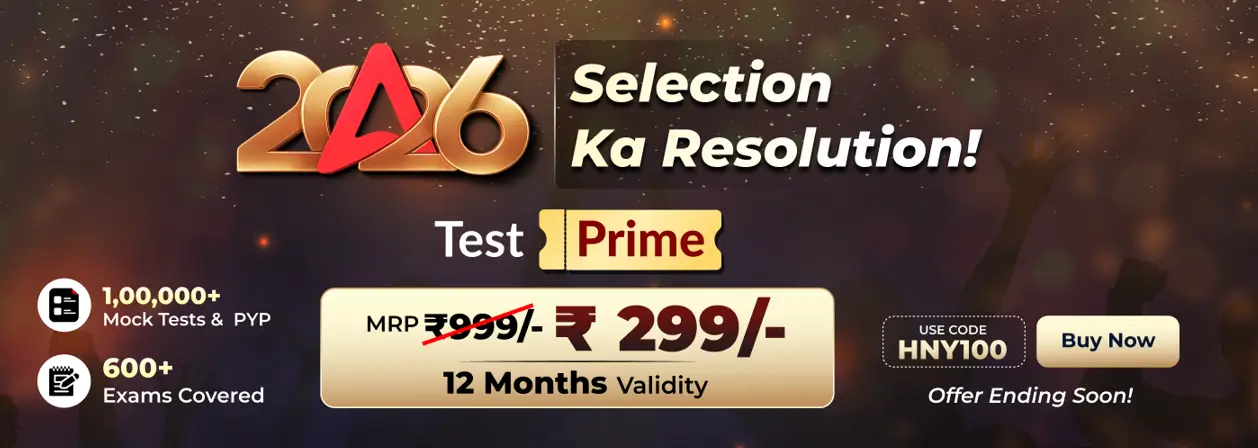Table of Contents
Down To Earth Magazine is a fortnightly magazine focusing on politics of environment and development, published in New Delhi, India.
UPSC Previous years’ questions on Development, Environment, Health and Disaster Management give us a clear idea about the increased importance of Down To Earth Magazine.
Down To Earth Magazine is one of the most important and indispensable sources for UPSC Civil Services Exam Preparation.
Keeping this in mind, here, we come with ”Gist Of Down To Earth Magazine” which covers important environmental current affairs articles in smooth pointed form, keeping in mind the demand of UPSC aspirants.
Pitfalls In IRGY-U Scheme: Introduction
- Unemployment, particularly among the youth, has emerged as a major issue of concern for the parties in power at the Centre and states.
- In July, in a somewhat different policy response, the Rajasthan government launched the Indira Gandhi Shahari Rozgar Yojana (IRGY-Urban), which is aimed at providing supplementary employment and livelihood support to the urban poor.
- Its guidelines explicitly mention that the scheme has been largely modelled on its rural counterpart, MGNREGA.
Pitfalls In IRGY-U Scheme: Why do governments need urban employment schemes?
- Large-scale job losses, particularly among the migrant workers in large cities during the strict lockdown imposed in the first wave of COVID-19, had triggered the demand for such a scheme in urban areas by several well-known economists and policy analysts.
- More recently, the Standing Committee on Labour in its report of August 3, 2021, also recommended an urban employment guarantee programme for the urban workforce in line with the Mahatma Gandhi National Rural Employment Guarantee Act (MGNREGA).
- The chairperson of the Prime Minister’s Economic Advisory Council Bibek Debroy also endorsed this idea while releasing a report, “The State of Inequality in India”, in May 2022.
Pitfalls In IRGY-U Scheme: What was SJSRY?
- Swarna Jayanti Shahari Rozgar Yojana (SJSRY) was launched in 1997 and continued till 2013.
- It was a centrally sponsored scheme.
- SJSRY had a wage employment component for households living below the poverty line in urban areas with a population of less than 500,000, as per the 1991 Census.
- The scheme offered employment to eligible households in works for the construction of socially and economically useful public assets, to be identified by community-level institutions, with a labour component of at least 40 per cent.
- It had a fairly elaborate programme implementation structure and guidelines like most other centrally sponsored schemes.
- But many research and study show that SJSRY had not achieved the desired results due to poor implementation.
Pitfalls In IRGY-U Scheme: MGNREGA vs IRGY-U
- In the context of a workfare scheme, the urban setting in India differs from that of the rural area in at least two significant ways.
- First, in rural areas, the demand for work under such a scheme is expected to be largely seasonal.
- This is not the case in urban areas, where labourers usually work in the unorganised sector and live in slums or unapproved colonies, and are thus in the need of remunerative work almost round the year.
- Second, the skillset of the urban workforce is far more varied than those of the rural workers, most of whom are unskilled.
- Besides, experts, including Bibek Debroy, have from time to time highlighted several concerns with regard to the design of the urban wage employment scheme, which may cause possible hurdles in effective implementation of IRGY-U.
Pitfalls In IRGY-U Scheme: Limitations of IRGY-U
- First, the scheme, contrary to its nomenclature, does not provide any “guarantee” of entitlement of 100 days of work to the registered households.
- Second, the scheme hardly provides any opportunity to the citizens and community-level institutions to participate in the implementation process, particularly in project identification, selection and approval. This is a significant departure from one of the basic features of MGNREGA, which mandates approval of the projects by gram sabhas.



 TSPSC Group 1 Question Paper 2024, Downl...
TSPSC Group 1 Question Paper 2024, Downl...
 TSPSC Group 1 Answer key 2024 Out, Downl...
TSPSC Group 1 Answer key 2024 Out, Downl...
 UPSC Prelims 2024 Question Paper, Downlo...
UPSC Prelims 2024 Question Paper, Downlo...





